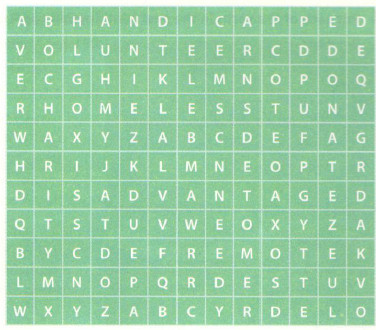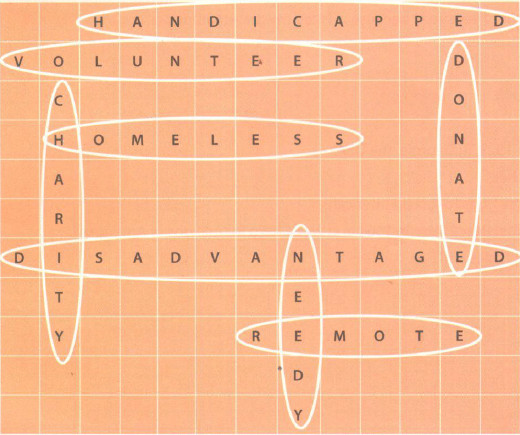Vocabulary & Grammar - trang 32 Unit 4 SBT Tiếng anh 10 mới
Underline the correct adjective in each pair
Bài 1
Task 1. Underline the correct adjective in each pair
Gạch dưới tính từ chính xác trong mỗi cặp
1. Do you enjoy skateboarding or do you think it’s boring/ bored ?
2. Do you get annoying/ annoyed if your parent ask you to help out in your free time?
3. Do you like playing computer games or are you tired/ tiring of them?
4. Parents should be careful/ careless not to push their children too hard
5. Thanks for your advice. It was really useful/ useless.
Đáp án:
1. Do you enjoy skateboarding or do you think it’s boring/ bored ?
Giải thích: Tính từ thêm đuôi -ing để chỉ bản chất của vự việc
Tạm dịch: Bạn thích trượt ván hay bạn nghĩ nó nhàm chán?
2. Do you get annoying/ annoyed if your parent ask you to help out in your free time?
Giải thích: get annoyed (vật ing người ed)
Tạm dịch: Bạn có thấy bị làm phiền khi bố mẹ nhờ bạn giúp đỡ khi bạn rảnh không
3. Do you like playing computer games or are you tired/ tiring of them?
Giải thích: vật ing người ed
Tạm dịch: Bạn thích chơi điện tử hay thấy chán chúng rồi?
4. Parents should be careful/ careless not to push their children too hard
Giải thích: chọn theo ngữ cảnh
Tạm dịch:Phụ huynh nên cẩn thận về việc thúc giục con mình quá mức
5. Thanks for your advice. It was really useful/ useless
Giải thích: chọn theo ngữ cảnh
Tạm dịch: Cảm ơn lời khuyên của bạn. Nó rất hữu ích
Bài 2
Task 2. Look at the puzzle below and find words that have the following meaning.
Nhìn vào câu đố bên dưới và tìm những từ có ý nghĩa sau.
1. To give money or goods to help a person or organisation
Tạm dịch: Đưa tiền hoặc hàng hóa để giúp một người hoặc tổ chức
2. A person who does something, especially helping other people willingly anh without being forced…….. to do it
Tạm dịch: Một người làm việc gì đó, đặc biệt là giúp đỡ người khác một cách tự nguyện và không bị ép buộc .. làm điều đó
3.A system of giving money, food, or help to those who are in need because they are ill, poor, or homeless
Tạm dịch:Một hệ thống cung cấp tiền, thực phẩm hoặc giúp đỡ cho những người có nhu cầu vì họ ốm yếu, nghèo hoặc vô gia cư
4. Without a home
Tạm dịch: không có nhà
5. Lacking the standard of living conditions, education that most people have
Tạm dịch: Thiếu tiêu chuẩn về điều kiện sống, giáo dục mà hầu hết mọi người đều có
6. Far away in distance, time, or relation
Tạm dịch: xa về khoảng cách, thời gian và mối quan hệ
7. Poor and not having enough food, or clothes
Tạm dịch: nghèo và không có đủ đồ ăn hay quần áo
8. Not able to use part of your body because it has been damaged in some way
Tạm dịch: Không thể sử dụng một phần cơ thể của bạn vì nó đã bị hư hại theo một cách nào đó

Đáp án:

Bài 3
Task 3. Complete the sentences with the words from the puzzle in exercise. Use the correct forms of the words.
Hoàn thành câu với các từ trong câu đố trong bài tập .Sử dụng đúng các dạng của từ
1. A group of businessmen in the local area___ ten million VND to this charity organisation last Tet holiday.
2. In our city, there are thousands of ___ people without a roof over their heads, warm clothes,or food to eat.
3. Do you agree with the saying ' ___ begins at home’?
4. Last summer holiday, a group of volunteer students came to help___ people in the area because these people didn't have enough food to eat.
5. Our charity organisation is relying on ___ to run the office and answer phone calls.
6. In all buildings, we should improve facilities for people who are physically___
7. Last year, the Ministry of Education set up a nationwide educational programme for economically___ children.
8. The learning conditions of children in a ___mountainous village are really bad.
Đáp án:
1. A group of businessmen in the local area donated ten million VND to this charity organisation last Tet holiday.
Giải thích:
Tạm dịch: Một nhóm doanh nghiệp trong khu vực đã ủng hộ 10 triệu đồng cho tổ chức từ thiện này Tết năm ngoái.
2. In our city, there are thousands of homeless people without a roof over their heads, warm clothes,or food to eat.
Tạm dịch: Ở thành phố của chúng tôi, có hàng ngàn người vô gia cư không có một mái nhà, quần áo ấm và đồ ăn.
3. Do you agree with the saying charity begins at home’?
Tạm dịch: Bạn có đồng ý với câu nói “Từ thiện bắt đầu từ trong gia đình” không?
4. Last summer holiday, a group of volunteer students came to help needy people in the area because these people didn't have enough food to eat.
Tạm dịch: Kỳ nghỉ hè năm ngoái, một nhóm tình nguyện viên học sinh đến giúp những người khó khăn trong vùng vì những người này không có đủ thức ăn để ăn.
5. Our charity organisation is relying on volunteers to run the office and answer phone calls.
Tạm dịch: Tổ chức từ thiện của chúng tôi dựa trên những người tình nguyện để vận hành tổ chức và trả lời các cuộc gọi.
6. In all buildings, we should improve facilities for people who are physically handicapped
Tạm dịch: Trong mọi tòa nhà, chúng ta nên cải thiện cơ sở vật chất cho những người khuyết tật.
7. Last year, the Ministry of Education set up a nationwide educational programme for economically disadvantaged children.
Tạm dịch: Năm ngoái, Bộ Giáo dục tạo nên một chương trình giáo dục toàn quốc cho trẻ em khó khăn về kinh tế.
8. The learning conditions of children in a remote mountainous village are really bad.
Tạm dịch: Điều kiện học tập của trẻ em ở vùng núi xa xôi rất tệ.
Bài 4
Task 4. Complete the text with the past simple forms of the verbs in brackets.
(Hoàn thành đoạn văn với thì quá khứ đơn của động từ trong ngoặc)
Last year I__________ (1. read) an article about a real hero - Craig. He_________ (2.go) to Pakistan and he ______ (3.start) an organisation to help children in this country. How did Craig, a twelve-year-old boy, ____________ (4. begin) an organisation? He ______ (5. have) the help of some school friends in Canada. At first, there ______ (6. not be) any people from other countries in the organisation. When they started, they___________ (7. not have) any money so they______ (8. create) friendship schools. The organisation ______ (9. not have) any problems finding schools in North America and Europe that ______ (10. want) to help.
Đáp án:
Last year I read an article about a real hero - Craig. He went to Pakistan and he started an organisation to help children in this country. How did Craig, a twelve-year-old boy, begin an organisation? He had the help of some school friends in Canada. At first, there wasn't any people from other countries in the organisation. When they started, they did not have any money so they created friendship schools. The organisation did not have any problems finding schools in North America and Europe that wanted to help.
Tạm dịch:
Năm ngoái tôi đã đọc một bài báo viết về người anh hùng thực thụ - Craig. Cậu ấy đã đến Pakistan và thành lập một tổ chức để giúp đỡ trẻ em ở đây. Làm thế nào mà Craig, một cậu bé mới mười hai tuổi, có thể thành lập cả một tổ chức? Cậu đã nhận được sự giúp đỡ từ một vài người bạn cùng trường ở Canada. Ban đầu, tổ chức không có một người ngoại quốc nào cả. Khi họ bắt đầu. họ không có tiền nên đã lập ra những ngôi trường tình bạn. Tổ chức không gặp khó khăn nào trong việc tìm ra những ngôi trường muốn giúp đỡ họ ở Bắc Mỹ và Châu Âu.
Bài 5
Task 5 Put each of the verbs in the past continuous or past simple.
Đặt các động từ ở thì quá khứ tiếp diễn hoặc quá khứ đơn
1. What_____ you ______ (do) when I called yesterday?
2. While I_____ (cook), he_____ (watch) TV.
3. He_______ (see) a job advertisement on a local newspaper and _____ (apply) for the job.
4. At 8 am yesterday, my mother______ (teach) at school and my father______ (work) in his office.
5. It was 5 p.m., and it______ (get) darker and darker.
Đáp án:
1. What were you you doing when I called yesterday?
Tạm dịch: Bạn đang làm gì lúc mình gọi tối qua vậy?
2. While I was cooking, he was watching TV.
Tạm dịch: Khi tôi đang nấu ăn, anh ấy đang xem TV.
3. He saw a job advertisement on a local newspaper and applied for the job.
Tạm dịch: Anh ấy thấy một quảng cáo tuyển dụng trên tờ báo địa phương và đi ứng tuyển công việc đó.
4. At 8 am yesterday, my mother was teaching at school and my father was working in his office.
Tạm dịch: Vào 8 giờ sáng hôm qua, mẹ tôi đang dạy học ở trường và bố tôi đang làm việc ở sở.
5. It was 5 p.m., and it was getting darker and darker.
Tạm dịch: Vào 5 giờ chiều, trời đang tối dần.
Bài 6
Task 6 Correct the mistake in each sentence.
Sửa lỗi trong mỗi câu.
Example:
Were you going to the cinema last night?
⟶ Did you go to the cinema last night?
1. The phone rang while I had lunch.
2. We were listening to some music when he was arriving.
3. It is 8.00 now and the film was starting at 7.30.
4. My sister and I were reading a comic book online when our father was coming in.
5. I wasn't going to school yesterday because I visited my grandparents.
Đáp án:
1. The phone rang while I was having lunch.
Giải thích: hành động đang xảy ra bị hàng động khác xen vào, vế when thì tiếp diễn, vế còn lại thì đơn
Tạm dịch: Điện thoại reo khi tôi đang ăn trưa.
2. We were listening to some music when he arrived.
Giải thích: hành động đang xảy ra bị hàng động khác xen vào, vế when thì tiếp diễn, vế còn lại thì đơn
Tạm dịch: Chúng tôi đã nghe nhạc khi anh ấy đến.
3. It is 8.00 now and the film started at 7.30.
Giải thích: phim chiếu là hành động đã xảy ra nên chia quá khứ
Tạm dịch: bây giờ là 8g và bộ phim bắt đầu từ 7g30
4. My sister and I were reading a comic book online when our father came in.
Giải thích: hành động đang xảy ra bị hàng động khác xen vào, vế when thì tiếp diễn, vế còn lại thì đơn
Tạm dịch: Chị tôi và tôi đang đọc truyện tranh trên mạng thì bố chúng tôi vào.
5. I didn't go to school yesterday because I visited my grandparents.
Giải thích: đi học là hành động xảy ra trong quá khứ
Tạm dịch: Tôi đã không đến trường ngày hôm qua vì tôi đã đến thăm ông bà của tôi.
Search google: "từ khóa + timdapan.com" Ví dụ: "Vocabulary & Grammar - trang 32 Unit 4 SBT Tiếng anh 10 mới timdapan.com"







